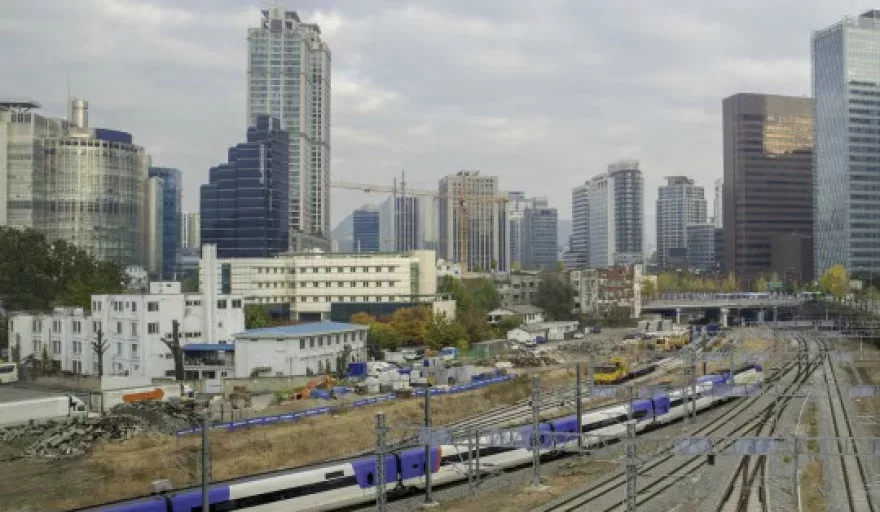Hong Kong leads the world for sustainable transport, according to the 2017 Sustainable Cities Mobility Index from Arcadis, the leading global Design & Consultancy for natural and built assets.
The Index was compiled for Arcadis by the Centre for Economic and Business Research (Cebr) and explores mobility through three pillars of sustainability – social (People), environmental (Planet) and economic (Profit) – to develop an indicative ranking of 100 of the world’s cities.
Although there is no magic recipe for the creation of successful and sustainable urban mobility, higher ranking cities have a better balance across the three pillars of sustainability. Hong Kong scored as the best city globally for overall mobility with 65 percent. Its scoring was consistently good across the three ‘P factors’ but in People, Hong Kong ranked highest with 81 percent as it places inhabitants’ mobility at the centre of what makes the city successful and enjoyable to live in.
Boosted by its innovative and well-connected metro network and a high share of trips taken by public transport, Hong Kong manages to achieve many of the aims of an effective urban transport system; enabling comprehensive mobility, creating economic opportunity and enriching the lives of citizens, business and tourists alike. The city’s transport applications, digital capabilities and transport system upkeep scored highly, illustrating that placing efficiency and peoples’ interests is high on Hong Kong’s agenda. Hong Kong’s good bus and metro wheelchair access was also highlighted.
Under Profit, the economic pillar of sustainability, Hong Kong ranked sixth overall and scored 100 percent on economic opportunity, suggesting the need to provide sustainable upkeep is seen as a priority and is a feature of the city’s success. The affordability of public transport against the average income also scored strongly (69 percent).
In Planet, the third pillar of sustainability, Hong Kong was 53rd overall with only Seoul, Shenzhen and Singapore scoring better out of cities in the region. It’s clear that the environment remains an overall weakness for Asia in relation to sustainability with only seven countries ranking in the top 50. In Hong Kong, green space provision scored high but the lack of bicycle infrastructure brought the score down, as did the lack of successful efforts to lower transport emissions. The number of electric vehicles is low and an increase in the future could be an easy option for growth in Hong Kong’s Planet score.
Aside from Hong Kong, two other Asian cities rank highly, taking two of the remaining top 10 spots, matching the results of the 2016 Sustainable Cities Mobility Index. Modern metro systems, large airports and low usage of private vehicles help boost the rankings of developed Asian cities such as Seoul (fourt) and Singapore (eighth). Other Asian cities would score higher were it not for damaging levels of urban pollution and emissions and several cities in the region, such as Hanoi and Kuala Lumpur, are some of the world’s least sustainable for mobility.
Francis Au, City Executive for Pearl River Delta (PRD) at Arcadis said: “Hong Kong should be congratulated for topping our Sustainable Cities Mobility Index. High-wealth cities like Hong Kong do not necessarily lead the ranking in sustainable urban mobility. Although these factors can help, we do see wealthy cities not automatically punching their ticket to sustainable urban mobility. To ensure that Hong Kong continues to lead, it should consider how to control pollution from maritime trade, introduce more port automation, and deploy cleaning mechanisms into the harbour.”
John Batten, Global Cities Director at Arcadis added: “Cities and their policymakers face enormous pressures as they seek to meet today’s mobility challenges. As rapid urbanisation, ageing infrastructure, population growth and climate change continue to challenge our world’s cities, those that choose to make bold moves in advancing and diversifying their urban transport systems will gain a competitive edge. We see that investing in improved and sustainable mobility will give cities enhanced productivity, attractiveness and overall quality of life.”
Asian Cities in the 2017 Sustainable Cities Mobility Index include:
| Overall Ranking | Asia Ranking | City |
| 1. | 1. | Hong Kong |
| 4. | 2. | Seoul |
| 8. | 3. | Singapore |
| 13. | 4. | Tokyo |
| 16. | 5. | Beijing |
| 19. | 6. | Shenzhen |
| 27. | 7. | Shanghai |
| 30. | 8. | Taipei |
| 33. | 9. | Guangzhou |
| 34. | 10. | Chennai |
| 39. | 11. | Macau |
| 50. | 12. | Chengdu |
| 56. | 13. | Bengaluru |
| 60. | 14. | New Delhi |
| 62. | 15. | Manila |
| 68. | 16. | Wuhan |
| 70. | 17. | Tianjin |
| 75. | 18. | Mumbai |
| 82. | 19. | Kolkata |
| 89. | 20. | Jakarta |
| 92. | 21. | Bangkok |
| 95. | 22. | Kuala Lumpur |
| 96. | 23. | Hanoi |
2017 Sustainable Cities Mobility Index’s overall top 10:
| 1. Hong Kong |
| 2. Zurich |
| 3. Paris |
| 4. Seoul |
| 5. Prague |
| 6. Vienna |
| 7. London |
| 8. Singapore |
| 9. Stockholm |
| 10. Frankfurt |






























